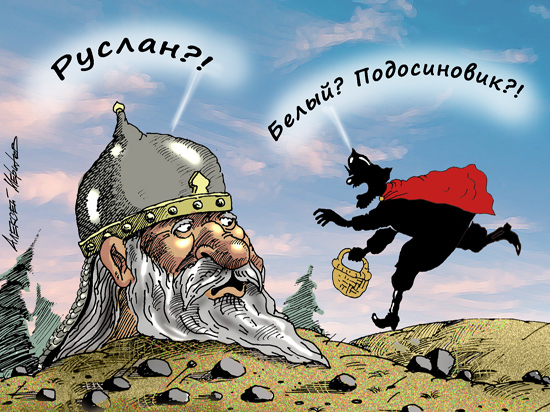Why the gifts of nature are becoming more expensive: mushrooms, nuts and berries break records in collections
[ad_1]

While the Russians are waiting for the Europeans for our turnips (as Vladimir Putin aptly put it), we do not know what to do with the harvest of wild plants. Last year, the country harvested a record number of mushrooms, berries and nuts – 22,000 tons. At the same time, exports, especially for berries, completely failed – they gave minus 60%.
By the way, we regularly set records for the collection of wild plants. Last year, we blocked the result of 2021 by 14%, and the year before last, compared to 2020, by as much as 48% (apparently due to the pandemic).
It would seem that we can only rejoice at such shock rates. These are not tomatoes and cucumbers grown in greenhouses on some kind of chemical soil, which sounds somehow un-Russian – hydroponics. This is a real natural product – environmentally friendly, without any human intervention.
Unfortunately, there are fewer and fewer such protected areas even in vast Russia. It is not surprising that 98% of the total gross harvest was given to us by the regions of Siberia (17.1 thousand tons) and the Far East – 4.6 thousand tons.
Last year, more than 400 lease agreements for the harvesting of food forest resources were concluded. According to experts, from September 1, 2023, self-employed Russians will also be included in the register of collectors of forest gifts. It is possible that already this year, in the fall, we will set another historical record, because new self-employed citizens will join the traditional forest harvesters.
But here’s the paradox: recently, the collection of wild plants has been increasing, but for some reason prices in stores and markets have not decreased. Moreover, they are simply not affordable for the average buyer.
We made a special point. Unfortunately, the range is not rich. Wild berries were not found in retail at all. On the shelves only pureed soaked cranberries: 350 grams – 190 rubles. But there is absolutely nothing there, because half is water. This situation with berries, according to experts, is quite understandable. The weather let us down in some regions (somewhere hot, somewhere, on the contrary, cold) and disruption of export supplies. If earlier European harvesters stood in line for our berries, then last year they did not come for them at all. Sanctions!
But if they are not sent to Europe, then they must remain on the domestic market, in our stores. But they are neither there nor here.
As for mushrooms, the situation with them is as follows. We did not see dried forest trees anywhere: neither in retail chains, nor in tents, nor at the grandmothers who stand in front of the shops. There are artificial champignons from greenhouses for 250-300 rubles a kilogram, oyster mushrooms are a little cheaper, also greenhouse ones. That’s the whole trading arsenal.
– Yesterday I bought 100 grams of salted black mushrooms in the supermarket, – one of the customers told us. – Painfully beautiful looked, I could not resist. 100 grams, it seems to be 8 caps. You can’t say anything – delicious, but they cost 90 rubles. If a kilogram, then almost 1000. Where does this fit? Recently I was on a train, beyond Ryazan, at each station, local residents sold dried chanterelles, and salted, and pickled, for a penny. The state simply does not take them from a private trader: there is no organization that would deal with this.
The position of the state on apples, which it does not accept from the population, can still be understood: they grow in every garden and vegetable garden, there is no shortage of them in the country. However, the time has long come to organize the reception of “gifts of the forest” from the population. Many Russians do not know the taste of real, not greenhouse champignon at all.
– 22 thousand tons of wild plants for Russia, although it is considered a record, but these volumes are few, hence the high prices for natural products from the forest, – says Mikhail Sumin, a former forester, Honored Arborist of the Russian Federation. – The collection of wild plants in our country is in its infancy, rests on enthusiasts. The state is away from this business. I remember that in the 1970s I was in the Trans-Baikal Territory, on the mountain river Krasnaya Chikoya: forest, mushrooms, berries and nuts. In tsarist times, the owner, in order to keep the assemblers, built a glass factory there. In summer and autumn, people harvested, in winter they preserved it in jars. They were busy all year round. In the 70s, almost nothing remained of that infrastructure, not to mention today. This area needs to be developed constantly and seriously.
– Can forests in Central Russia compete with Siberia or the Far East?
– Of course, the ecology here is disturbed for many reasons. This is the active development of new territories for development, and simply an increasing army of mushroom pickers, which goes into the forest for picnics and picking berries, clogs plantings. Especially such sorties became more frequent with the advent of GP – after all, before only foresters had detailed maps.
No, this area is not intended for the industrial collection of forest products. Although I know a mushroom pickup point in the Vladimir region, mushrooms, berries and nuts are handed over there. Admittedly, last year was a poor year. But even in this territory there are places with blueberries, cranberries, lingonberries. Experienced mushroom pickers know where to go for white, boletus or mushrooms.
[ad_2]
Source link






